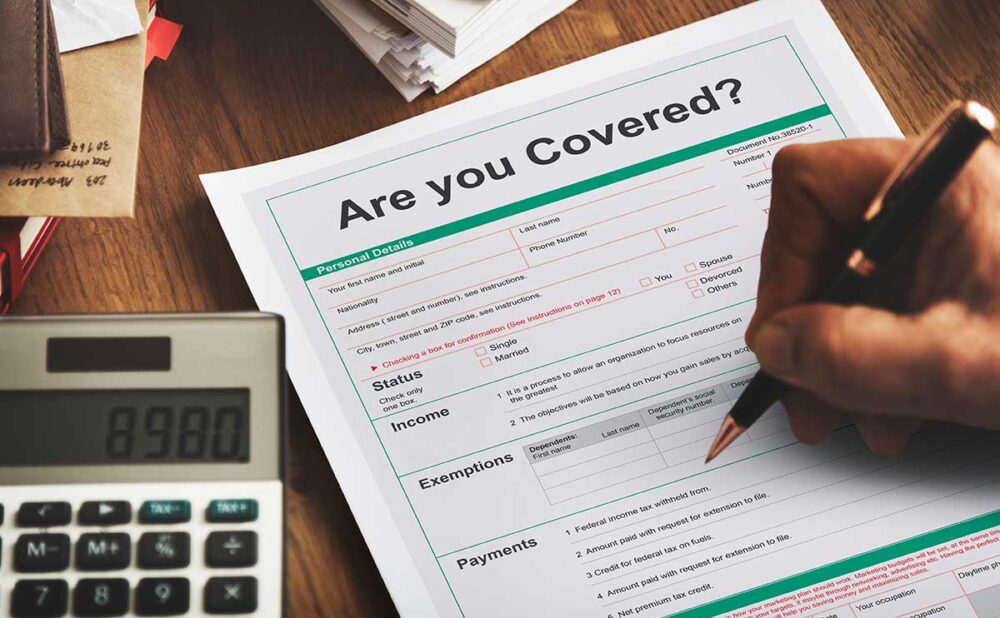Can I Use Health Insurance if I’m in a Car Wreck
A frequently asked question from our clients at The Jewkes Firm is whether to use health insurance for treatment of injuries. In Georgia, you are ultimately responsible for the medical expenses incurred from the car wreck. More often than not, those individuals with health insurance pay a smaller portion of “out of pocket” expenses towards their medical bills. For this reason, our car accident lawyers generally recommend that you use your health insurance to cover your medical treatment.
Getting treatment for injuries can become tricky, especially when there are different types of insurances policies in place. The injured individual often doesn’t understand which insurance policies they should use for paying medical bills. They are also unsure about whether their health insurance can cover the accident injuries.
Several health insurance policies do cover injuries sustained in a car accident but often only to a certain point. We’ll share with you some important issues associated with auto accident injuries and health insurance.
Co-Pays and Deductibles
If you have private health insurance (such as UHC, Blue Cross Blue Shield, or Coventry) or government-backed insurance (such as Medicare or Medicaid) , you should try to use it to pay for treatment for injuries from a car wreck injuries. As with non-car wreck situations, such as treatment to recover from some illness or other health related issue, you’ll be required to first pay the co-pay or deductible under your insurance plan.
For car wrecks, this may mean you will have to pay some expenses “out of pocket,” even if it is not your fault. The benefit comes through the negotiated pricing between health insurance companies and medical providers. Georgia allows you to recover the full amount of medical expenses, including any “out of pocket” expense in co-pays, regardless of any reduction given to the insurance company. So, when we attempt to negotiate a settlement with the at-fault driver’s insurance, we attempt to obtain the value of all of the medical bills charged (not just what was paid) as part of the final settlement. If your health insurance has paid these bills, then there will be more money for you to recover from the settlement.
For example, if you obtain an x-ray at the emergency department and that x-ray has a retail price of $100, your health insurance will pay the negotiated price with the hospital for that x-ray, which price will be substantially less than the retail price of $100, sometimes as little as $20 or $30. Even though your health insurance pays less for that x-ray, we can negotiate with the at-fault driver’s insurance in settlement negotiations for the full amount ($100) of that x-ray. This is one way to maximize your recovery.
Treatment on a Lien
If you do not have health insurance or your health insurance requires a high “out of pocket” deductible, and you are not at fault, some medical providers (doctors, chiropractors, physical therapists) will treat you on a lien basis, i.e., not charge you up front with the understanding the medical bills will be paid once a settlement is received from the at-fault party’s insurance. We can often provide you with names of local medical providers who are willing to treat on a lien with no upfront cost to you.
Initial treating providers, such as ambulances, hospitals, and ER doctors, might not require you to make an upfront payment after the wreck. Instead, they’ll likely provide all the necessary services and treatment and then bill you several weeks later. Many hospitals and ER doctors do not want to take health insurance up front and prefer to take money directly from your settlement. The medical providers may file a lien for services rendered and seek 100% of the bill (as opposed to the lower negotiated rate with the health insurer), even though you have health insurance. Therefore, if you have health insurance at the time of the wreck, it may be necessary to contact the billing department of the ER department or hospital directly and instruct them to charge your health insurance. This will save you money in the long run, once a settlement with the at-fault driver’s insurance is finalized. Please call a member of The Jewkes Firm if you have any questions on this process.
If you are seriously injured after an accident and are taken to the emergency room, you or your family won’t be immediately asked to make the payment. However, you’ll receive a bill from the hospital or ambulance company after few weeks. This bill will likely have a section where you’re asked about your health insurance. If you have health plan, you will have to provide the details of it in the provided space and send the medical bill back. The hospital or ambulance company will deal with the health insurer to receive payment.
Med Pay Coverage
Med pay (short for medical payments coverage) is a type of health insurance coverage provided in your auto insurance policy. A typical med pay policy is $5,000, but they can be less or much more. If you are unsure whether your auto policy includes med pay coverage, you can look on your insurance coverage documents or call your auto insurance to inquire.
Med pay coverage is usually in incremental amounts and is money intended to cover out of pocket medical expenses that your health insurance may not cover, such as deductibles and co-pays. One of the benefits to med pay coverage in Georgia is the money disbursed does not have to be paid back, even if those medical expenses are eventually recovered in a final settlement. Med pay coverage is an excellent resource to pay medical providers such as chiropractors and physical therapists, who often do not accept health insurance if you are injured from a car wreck.
We recommend that any drivers in Georgia carry at least $5,000 in med pay coverage. Contact your auto insurance agent to discuss the policy terms and costs. Fortunately, the cost of adding med pay coverage to your auto policy is typically one of the least expensive coverage options and often provides the most benefit. Call a member of The Jewkes Firm if you have any questions about med pay coverage.
Expense Recovery
If you’re injured in a car wreck and you are not at fault, ultimately, the “at-fault” driver’s insurance company is responsible for medical bills and other costs to you. If, however, you are the “at-fault” driver which caused the wreck, all of the discussed options above may not be available to you. It is always a good idea to contact your auto insurance company and discuss coverage benefits.
If you are involved in a car accident and suffer serious injuries, your health insurance can cover the medical expenses. Unfortunately, the reality is health insurance providers can deny coverage and auto insurers rarely offer you fair settlement. Even your own auto insurance company is concerned more with their finances instead of your health or fairly compensating you for what the law entitles you. Both your health insurer and auto insurer can deny coverage even when they are should offer you compensation. If that ever happens to you and you feel that the insurance company is acting in bad faith, you should consult The Jewkes Firm to discuss your options.
Insurance coverage can be complex. If you are ever in a car wreck, we can help you through the process.




